Clarion Congress Hotel Prague, Czech Republic
Keynote Speakers
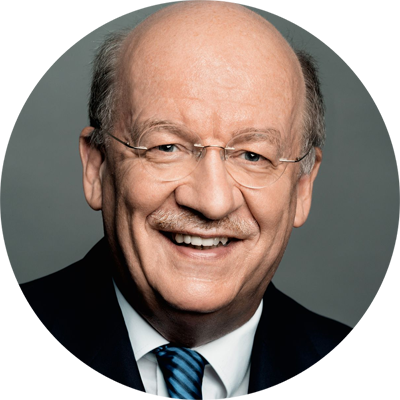
Wolfgang Wahlster
CEA of the German Research Center for Artificial Intelligence
Edge AI and Active Digital Twins for the Next Decade of Industrie 4.0
Abstract:
Edge AI in contrast to cloud-based approaches enables low-latency and low-power AI applications in smart factories. AI manufacturing platforms based on the combination of Edge and Sky Computing transform legacy factories into resource-efficient Industrie 4.0 facilities. Active digital twins allow the permanent tracking of the CO2 footprint for every instance of a product. In the next decade of Industrie 4.0, one major goal is the automatic interpretation of industrial data using AI to enable zero-defect and sustainable production. This means that all phases of the production chain can be supported by machine learning. We illustrate the latest research breakthroughs of industrial Edge AI with practical examples from major European industry initiatives.
Short Bio:
Dr. Wolfgang Wahlster is a Professor of Artificial Intelligence (AI) and a pioneer of AI and Industry 4.0 in Europe. As a founding director of the German Research Center for Artificial Intelligence (DFKI) and in his role as its long-time CEO and scientific director, he has developed DFKI into one of the world’s largest research centers in AI with more than 100 successful spin-off companies. Wahlster is a member of the Nobel Prize Academy in Stockholm and is the winner of the German Future Prize. Other awards include five honorary doctorates from universities in Darmstadt, Linkoeping, Maastricht, Prague and Oldenburg. He has served as an elected President of three international AI organizations: IJCAII, EurAI, and ACL. He is an elected Fellow of AAAI, EurAI, and GI. His current research areas are multimodal dialog systems for human-centered AI and cyber-physical production systems for the fourth industrial revolution (Industrie 4.0), a concept that he coined in 2010.
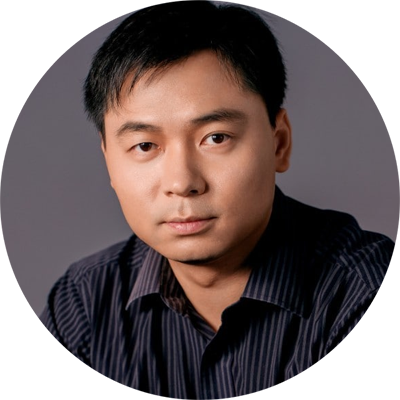
Dacheng Tao
University of Sydney, Australia
Super Deep Learning, another chance?
Abstract:
Deep learning has witnessed remarkable success in many application domains and is now shifting towards training super deep models with extremely large scale labeled or unlabeled data on expensive computational resources. In this talk, I will present some of the recent progress. Specifically, I will first show the PAC-Bayes generalization bounds and present some practical implications for new algorithm designs. Then, I will propose an efficient architecture design for visual transformers, named ViTAE, by exploring the intrinsic inductive biases. Next, he will introduce a novel self-supervised training method called RegionCL, which uses a simple region swapping strategy to build effective supervisory signals from rich positive/negative pairs at both the instance level and the region level. It greatly advances the ability of representative self-supervised leaning frameworks including MoCo, SimCLR, and SimSam. Finally, some promising applications of visual transformers and self-supervised leaning will be presented, including image classification, object detection, semantic segmentation, and pose estimation.
Short Bio:
Dacheng Tao is the Inaugural Director of the JD Explore Academy and a Senior Vice President of JD.com. He is also an advisor and chief scientist of the digital sciences initiative in the University of Sydney. He mainly applies statistics and mathematics to artificial intelligence and data science, and his research is detailed in one monograph and over 200 publications in prestigious journals and proceedings at leading conferences. He received the 2015 Australian Scopus-Eureka Prize, the 2018 IEEE ICDM Research Contributions Award, and the 2021 IEEE Computer Society McCluskey Technical Achievement Award. He is a fellow of the Australian Academy of Science, the World Academy of Sciences, the Royal Society of NSW, AAAS, ACM and IEEE.
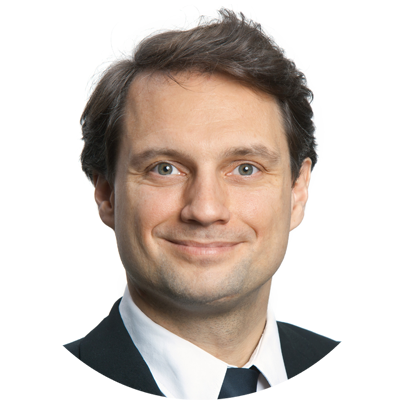
Peter Palensky
TU Delft, The Netherlands
Digital power system and how to hack them
Abstract:
The digital transformation of our power system leads to lots of benefits: more insight, more flexibility, more preparedness for an uncertain and dynamic future. Equipping all power system assets with digital functions, however, also imports phenomena from the ICT world: complexity, software bugs, race- conditions, interoperability questions, and - last but not least - cyber-security problems. Activist hackers, terrorists, digital vandals, state player attacks: they all can aim at the digital assets of modern power systems in order to impact the physical half of it. Industrial control systems for power systems such as IEC 61850 and the smart IoT- enabled grid-edge are elements of the so-called attack surface. This talk will introduce you to cyber-physical power systems, show some modeling options, and explain which threats we have to deal with now and in future. It will also explain some known attacks of recent years and demonstrate you how to hack digital substation protection leading to cascading outages - more prominently known as blackouts.
Short Bio:
Peter Palensky is full Professor for intelligent electric power grids at TU Delft, Faculty for Electrical Engineering, Mathematics and Computer Science, Netherlands, since 2014, working on mastering the complexity of smart, sustainable and flexible electric power systems.
He also serves as Scientific Director of TU Delft’s PowerWeb institute, a cross-faculty think tank for integrated and intelligent energy systems, and as Principle Investigator at the Amsterdam Metropolitain Solutions (AMS) institute. He is past Editor-in-Chief of the IEEE Industrial Electronics Magazine and associate editor for several other IEEE journals. He is financial advisor and AdCom member-at-large of the IEEE Industrial Electronics Society.
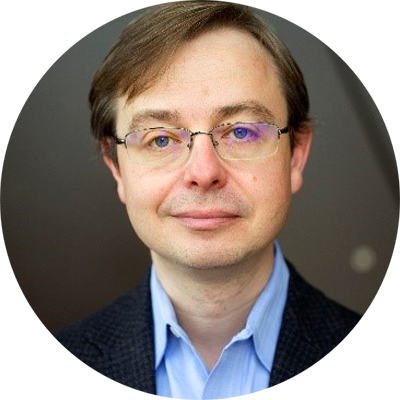
Ilya Kolmanovsky
University of Michigan, USA
Perspectives, Challenges and Opportunities in Control of Safety Critical Systems for Increased Autonomy
Abstract:
Autonomous systems need to satisfy increasingly stringent requirements informed by regulations, expanding mission objectives, human-machine interactions, and safety considerations. In particular, constraints on state, output and control variables need to be enforced during system operation. The speaker will present perspectives on control of systems with constraints drawn from his experience with the relevant theory and applications, and he will highlight underlying challenges and opportunities. In particular, the development of add-on governor schemes to protect systems from constraint violation, the interplay between closed-loop stability, performance and computations in model predictive control, integration of constrained control and learning, and approaches to maximizing system operating life when safety critical constraint violation cannot be avoided will be discussed. The potential for applications to control of autonomous spacecraft, very flexible aircraft and automotive vehicles will be highlighted.
Short Bio:
Dr. Ilya Kolmanovsky has received his M.S. and Ph.D. degrees in aerospace engineering, and the M.A. degree in mathematics all from the University of Michigan, Ann Arbor, in 1993, 1995, and 1995, respectively. He is presently a (full) professor in the department of aerospace engineering at the University of Michigan, with research interests in control theory for systems with state and control constraints, and in control applications to aerospace and automotive systems. Dr. Kolmanovsky has previously been with Ford Research and Advanced Engineering in Dearborn, Michigan, for close to 15 years. He is a Fellow of IEEE, a past recipient of the Donald P. Eckman Award of American Automatic Control Council, of two IEEE Transactions on Control Systems Technology Outstanding Paper Awards, of SICE Technology Award, and of several awards of Ford Research and Advanced Engineering. Dr. Kolmanovsky is a co-inventor of 104 United States patents and has coauthored over 600 publications. He serves as a Senior Editor for IEEE Transactions on Control Systems Technology.
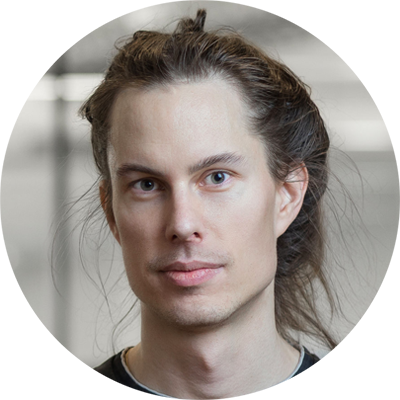
Tomas Mikolov
CIIRC CVUT, Prague, Czech Republic
Complex systems for AI
Abstract:
In this talk, I will describe some of our recent efforts to develop mathematical models which can spontaneously evolve and increase in complexity. We hope such models can be a basis for stronger AI models, which could possibly learn, adapt and develop in time without the need for supervision or even rewards. This would allow us to solve tasks which are currently too challenging for the mainstream machine learning algorithms, such as smart chatbots or other applications where learning on the fly without supervision is necessary.
Short Bio:
Tomas Mikolov is a senior researcher at CIIRC CVUT, Prague. Previously, he has been a research scientist at Facebook AI Research and Google Brain. With over 120 thousand citations, he is one of the most cited researchers in the areas such as natural language processing, machine learning and artificial intelligence. His most well known projects apply neural networks to various problems involving language (language modeling, machine translation, speech recognition and text classification). His main research interest is to develop intelligent algorithms which can learn through communication in a similar way people do.
Copyright © 2022 Milena Zeithamlova, Action M Agency. All rights reserved. Powered by APPTIDE.


